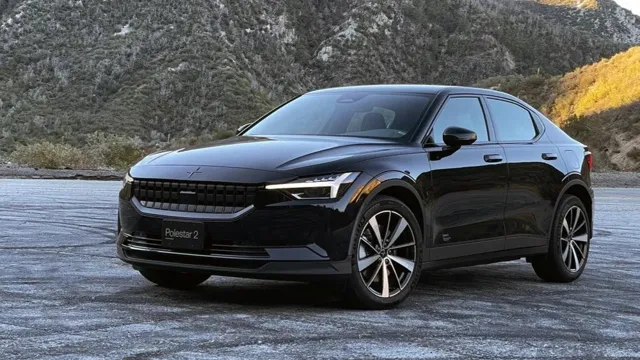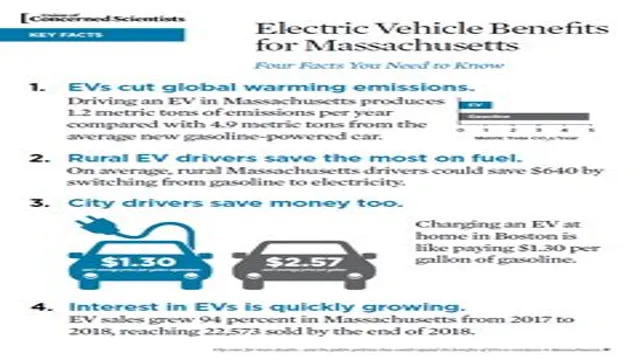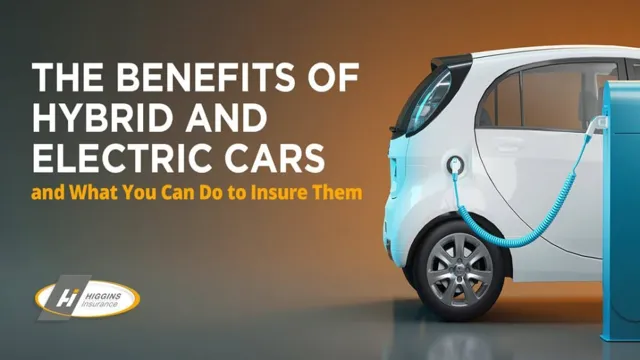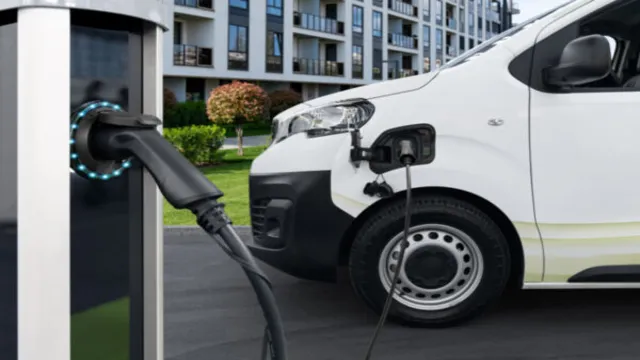Electric Cars and Benefit-in-Kind: How HMRC Tax Benefits Can Help You Save Money!
Electric cars have been on the rise in recent years, thanks to their eco-friendly nature and lower running costs. But did you know that owning an electric car can also come with financial benefits? That’s right, if you own or lease an electric car, you may be eligible for a Benefit in Kind (BIK) tax break from HM Revenue and Customs (HMRC). In simple terms, BIK is a tax that employees pay on any non-cash benefits they receive as part of their job, with company cars being one example.
However, electric cars are exempt from BIK tax for the next few years. In this blog, we’ll guide you through everything you need to know about BIK on electric cars from HMRC, including how to calculate your potential savings. So, if you’re considering an electric car, keep reading to see how you can save money on tax!
What is Benefit in Kind?
If you’re considering buying an electric car, one thing you need to keep in mind is the potential benefit-in-kind tax you may have to pay to HMRC. Benefit-in-kind (BIK) refers to non-salary perks and benefits that employees receive from their employers. BIK tax is charged on the value of these benefits, which is added to your overall taxable income.
When it comes to electric cars, the government offers lower BIK rates than for petrol and diesel vehicles in order to incentivize cleaner transportation. In 2021, electric cars are subject to a 1% BIK rate, rising to 2% in 2022 and 2023, before settling at 2% in 2024 and beyond. This is in contrast to petrol and diesel vehicles, which face a much higher BIK tax rate.
It’s important to consider the costs of BIK tax when deciding whether an electric car is right for you, but it’s also worth noting that the potential savings of not having to pay for fuel and lower maintenance costs can offset this.
Explanation of Benefit in Kind
Benefit in Kind is a term that refers to any non-wage compensation given by employers to their employees. This compensation can range from a company car to special health insurance policies to gym memberships. The purpose of Benefit in Kind is to incentivize employees to work hard and stay with their employer long term.
However, it also benefits the employer as it can increase employee satisfaction and productivity. The amount of tax that an employee pays on their Benefit in Kind is determined by the value of the benefit itself and the employee’s tax bracket. It’s important to note that Benefit in Kind is considered a taxable income and must be reported on your annual tax return.
So, if you receive Benefit in Kind, you’ll want to make sure you’re accounting for it properly come tax season.
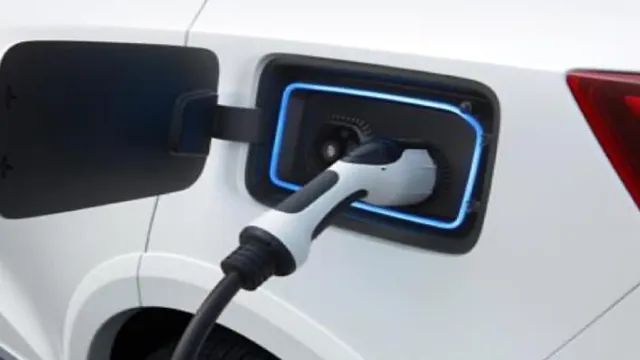
How it Applies to Electric Cars
When it comes to electric cars, Benefit in Kind (BIK) is an important concept that drivers need to understand. BIK is a tax that is levied on employees for the use of a company car. The tax is based on the car’s list price, CO2 emissions, and fuel type.
For electric cars, the BIK rate is significantly lower than for petrol or diesel cars. This is because electric cars have zero tailpipe emissions, making them more environmentally friendly. The lower BIK rate means that drivers of electric cars pay less tax than those who drive petrol or diesel cars.
This is a great incentive for drivers to switch to electric cars and helps to make them a more affordable option. Additionally, many companies provide charging facilities for their employees, making it even more convenient for them to switch to electric cars. Overall, understanding the benefits of BIK for electric cars can make a big difference to drivers, both in terms of their finances and in reducing their environmental impact.
Tax Rates for Benefit in Kind on Electric Cars
If you’re considering getting an electric car as a company vehicle, it’s important to understand the tax rates for benefit in kind on electric cars. The HMRC sets these rates to determine how much tax you will have to pay based on the value of the car and its CO2 emissions. For electric cars with zero emissions, the benefit in kind tax rate is currently set at 1% for the 2021/2022 tax year.
This means that if the car is worth £30,000, you would be required to pay £300 in tax. These rates are significantly lower than those for petrol or diesel cars, which can go up to 37%. It’s worth noting that the benefit in kind tax rate for electric cars is set to increase to 2% in 2022/2023 and 2023/2024, before returning to 1% in 2024/202
This increase is due to the HMRC phasing in more regular reviews of the rates to keep up with the changing landscape of electric cars. Overall, while there may still be some tax to pay, the benefit in kind tax rates for electric cars are very attractive and make them a strong choice for company vehicles.
Overview of Tax Rates
When it comes to owning an electric car, it’s important to consider the tax rates for benefit in kind. Benefit in kind (BIK) refers to any non-cash benefit provided to employees in addition to their salary, and it’s important to calculate the tax on these benefits correctly to avoid any discrepancies with the law. For electric cars, there are different BIK tax rates depending on their CO2 emissions.
Currently, electric cars that emit 0g/km of CO2 only require a 1% BIK tax rate, which is significantly lower than the rates for petrol and diesel cars. This is because electric cars are more environmentally friendly and contribute less to air pollution. So, not only will you be doing your part for the environment by driving an electric car, but you’ll also be saving money on BIK tax rates.
Comparing with Traditional Cars
When it comes to electric cars, taxes can be a tricky subject. Specifically, one area that often confuses people is benefit-in-kind tax rates. This is the tax that applies when an employer provides an employee with a company car for personal use.
The good news is that electric cars generally have lower benefit-in-kind tax rates than traditional cars. In fact, for the tax year 2021-22 in the UK, the benefit-in-kind tax rate for electric cars is 1% for the tax year 2021-22, compared to a rate of up to 38% for traditional petrol or diesel cars. This can lead to significant savings, especially for those who drive a lot and rely on a company car for personal use.
So if you’re considering switching to an electric car, it’s worth looking into how much you could save on tax compared to your current vehicle.
Benefits of Choosing Electric Cars
As the world is moving towards eco-friendliness, more and more people are opting for electric cars. One of the main benefits of choosing an electric car is the lower tax rates for benefit in kind. In simple terms, benefit in kind refers to any benefits an employee receives from their employer outside of their salary.
In the UK, employees using company cars for personal use are subject to a tax charge based on the car’s value and its CO2 emissions. However, electric cars are exempt from this tax charge, making them a more cost-effective option for both employees and employers. This not only encourages employees to opt for cleaner and more sustainable modes of transport but also saves them money in the long run.
With the government’s focus on reducing emissions, these tax incentives are likely to continue, making the switch to electric cars an increasingly attractive option.
How to Declare Benefit in Kind on Electric Cars
If you’re driving an electric car as a company car, it’s important to know how to declare the benefit in kind on your taxes. The HMRC calculates this based on the car’s list price and CO2 emissions. However, as electric cars produce zero emissions, they are currently taxed at a lower rate than traditional petrol or diesel cars.
It’s worth noting that the rate of benefit in kind on electric cars will change in the coming years as the government phases out the incentive. To ensure you’re declaring the correct amount, you’ll need to know the list price of your car including any optional extras, and the date it was registered. If you’re also taking advantage of workplace charging, this may affect the calculation too.
Thankfully, there are online calculators available to help you determine your benefit in kind tax liability. Despite the changes to the rate in the future, for now, electric cars remain a tax-efficient choice for company cars.
Step-by-Step Guide for Employers
If your company provides electric cars as a benefit in kind to your employees, you’ll need to declare this on your annual P11D form. This may seem daunting, but there are just a few simple steps to follow. First, you need to calculate the cash equivalent of the benefit, which is the amount that the employee would have to pay in tax if they had received the benefit as salary.
This is based on the car’s list price, CO2 emissions, and fuel type, among other factors. Next, you’ll need to include this amount on the employee’s P11D form, as well as on your company’s Class 1A National Insurance contributions. Finally, you should make sure that the employee is aware of the amount of tax they’ll need to pay on the benefit, and that they know how to submit this information to HM Revenue and Customs.
With a little bit of planning and organization, declaring benefits in kind on electric cars can be a straightforward process.
Potential Savings for Employees
If you’re an employee who received an electric company car benefit, it’s important to know how to declare it for tax purposes. First of all, it’s important to note that electric cars are a tax-efficient option for both employees and employers, as there are significant tax savings compared to traditional gas cars. To declare the benefit in kind on your electric car, you’ll need to check with your employer to see if they are registering the car with HMRC and if not, you’ll need to register the car yourself.
This can be done by filling out a P46(car) form or updating your tax code via your Personal Tax Account. Once the car is registered, you’ll need to declare the cash equivalent value of the benefit on your Self-Assessment tax return. Overall, declaring an electric car benefit may seem confusing at first, but it’s worth the effort as it leads to significant savings for both you and your employer.
Conclusion
In conclusion, when it comes to benefit in kind on electric cars, HMRC has recognized the benefits not only for the environment but also for the wallet. With lower tax rates and exemptions for electric vehicles, it makes financial sense for individuals and businesses alike to make the switch. Plus, you’ll be able to drive guilt-free knowing that you’re doing your part to reduce carbon emissions.
So, let’s zip around in our electric cars and enjoy the double perk of sustainability and savings!”
FAQs
What is Benefit in Kind on electric cars according to HMRC?
Benefit in Kind is the value of any non-cash benefits that employees receive from their employer. In the case of electric cars, it is the value of the car provided by the employer to their employees for personal use.
Do electric cars attract Benefit in Kind tax?
Yes, electric cars do attract Benefit in Kind tax, but the tax is lower compared to their petrol or diesel counterparts.
How is Benefit in Kind on electric cars calculated?
Benefit in Kind tax on electric cars is calculated based on the car’s list price, CO2 emissions, and electric range. The lower the CO2 emissions and the higher the electric range, the lower the tax.
Can employers and employees reduce the Benefit in Kind tax on electric cars?
Yes, employers and employees can reduce the Benefit in Kind tax on electric cars by choosing a car with lower CO2 emissions and higher electric range, ensuring that the car is used strictly for business purposes only, and asking employees to contribute towards the cost of running the car.
